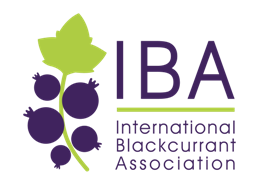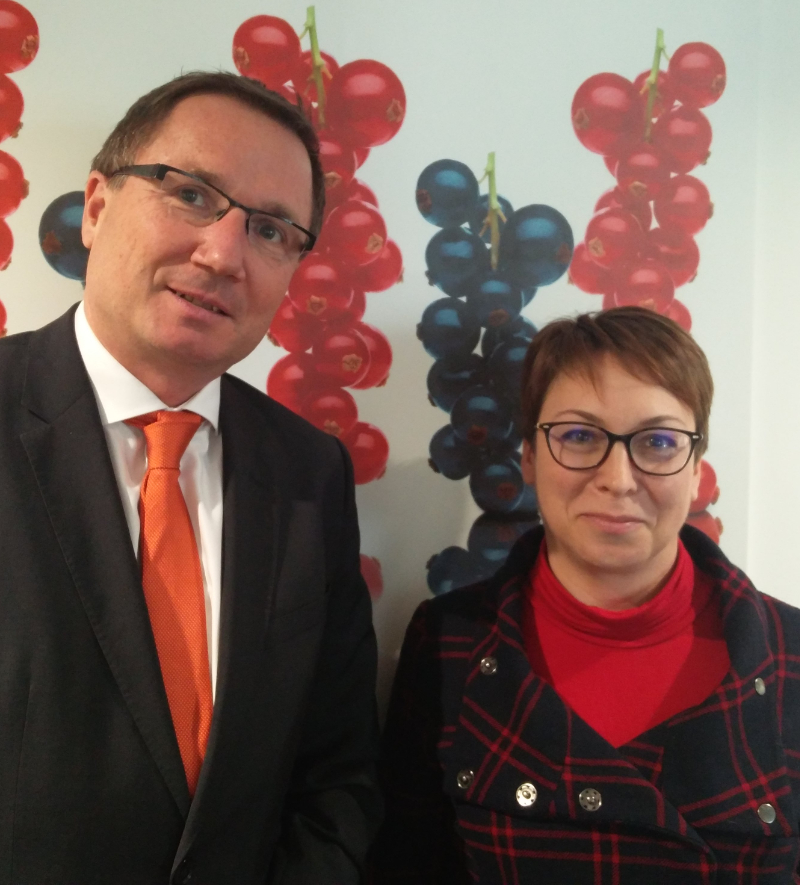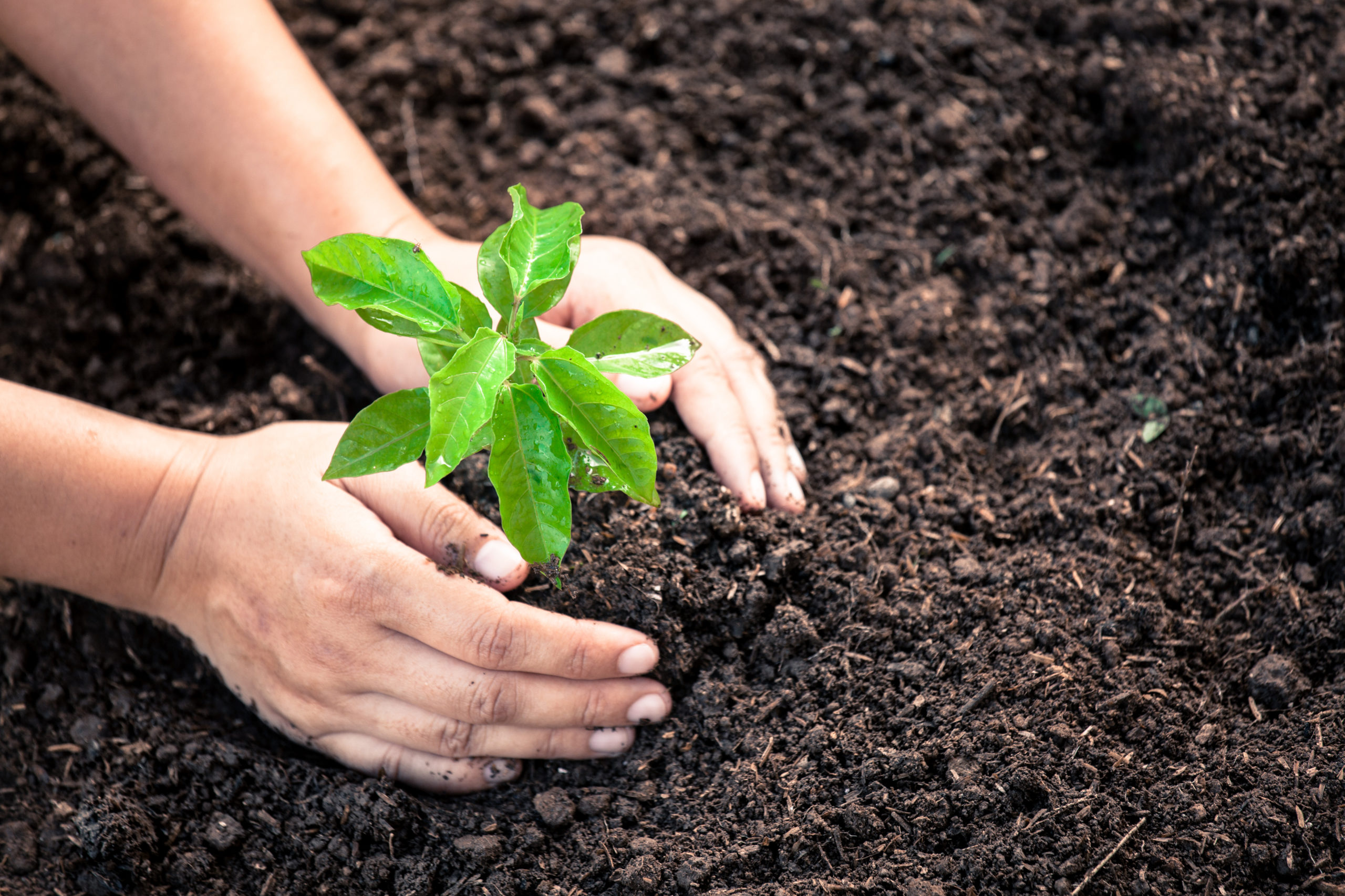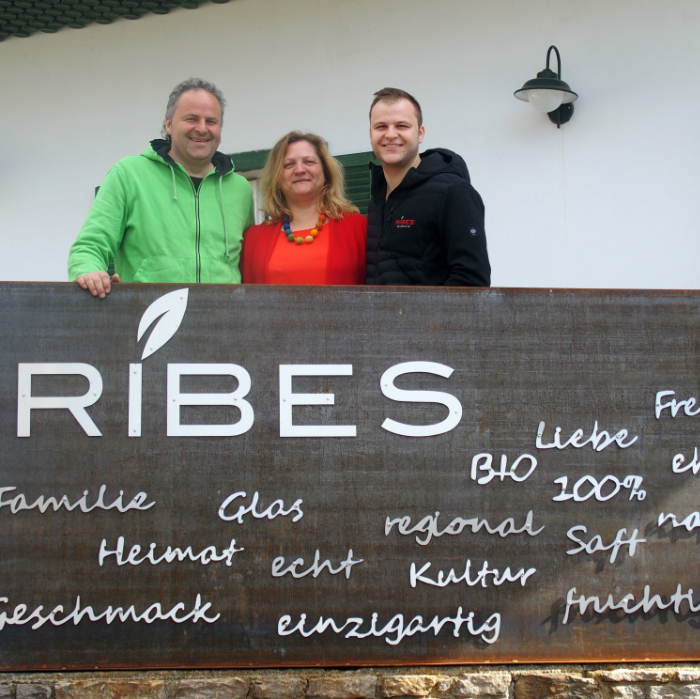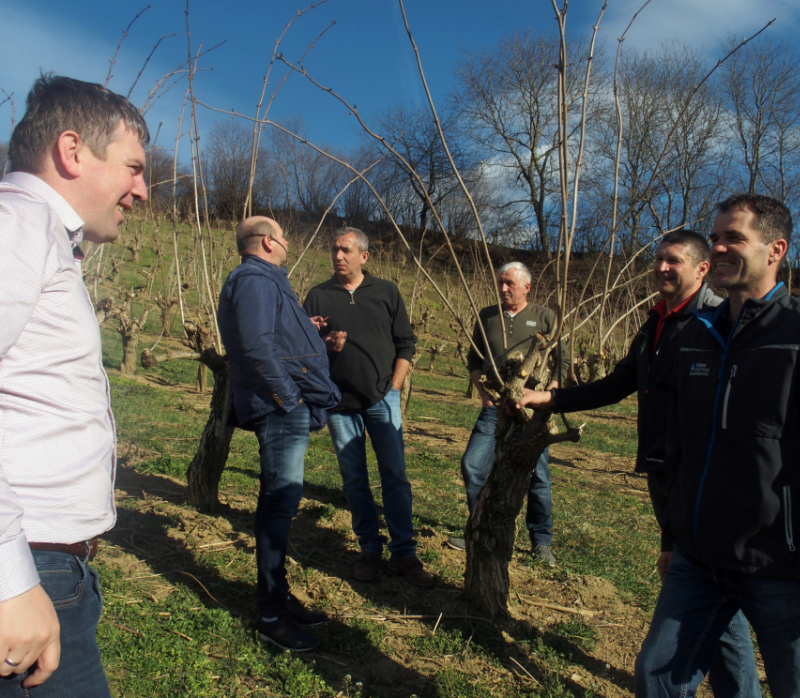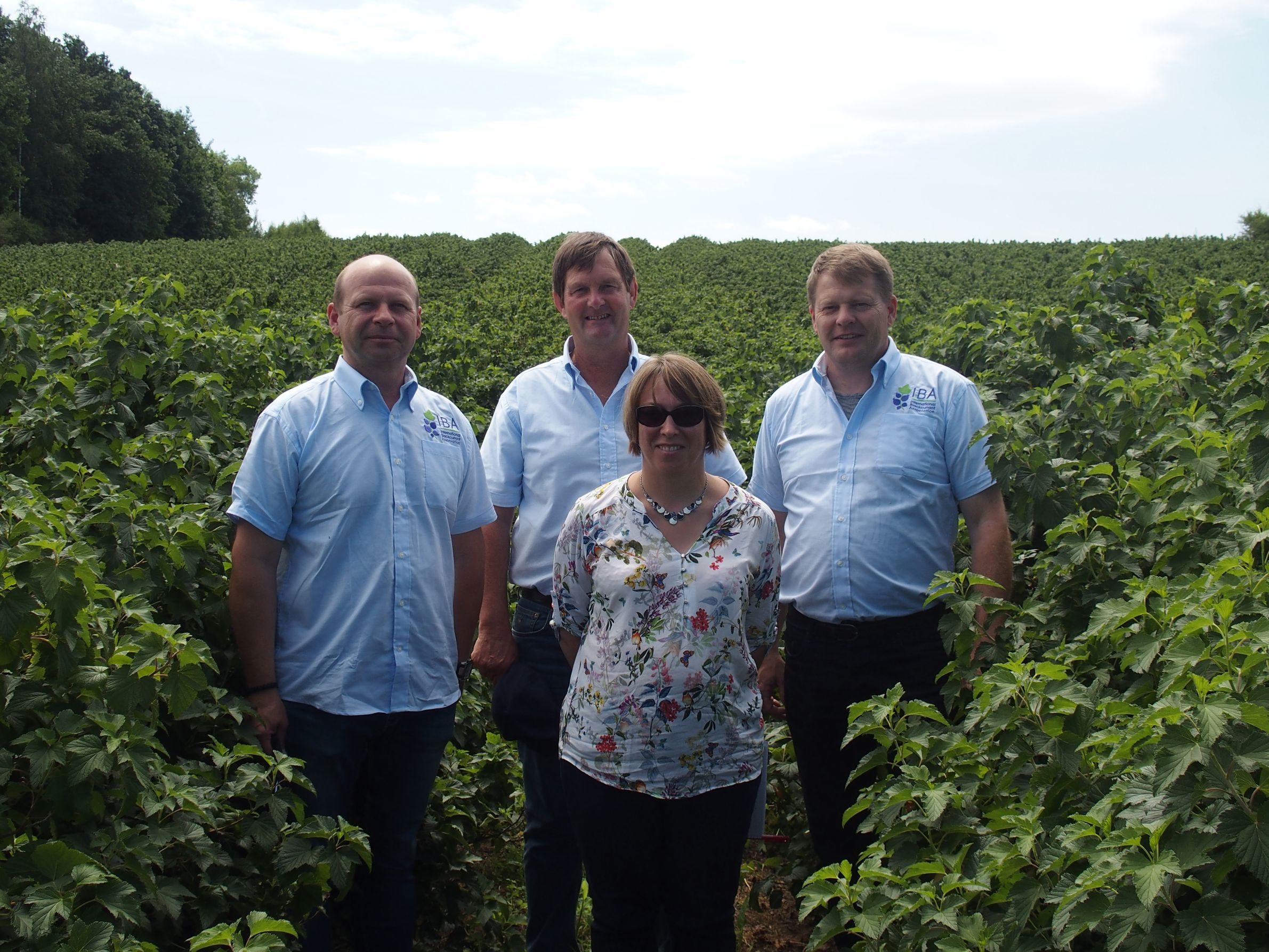Austria Juice and blackcurrants
Austria Juice, one of the biggest concentrate producers in the world, has its headquarters in Kroellendorf and Vienna, Austria. They have also been partners of the IBA from the beginning and until today. Two good reasons to meet CEO Franz Ennser in March 2020.
May I introduce AUSTRIA JUICE?
For many of our readers, Austria Juice is already well known. This is no surprise, as it is one of the leading fruit and vegetable processors. With its 1000 employees and 250 million € turnover from 15 factories, Austria Juice is playing a major role in the concentrate business. Many may refer to the company under the name of Agrana – which is not completely wrong.
Actually, in 2012, Agrana merged with Ybbstaler Fruit – both companies had the same main shareholder: RWA Raiffeisen Ware Austria AG. Their product portfolio includes fruit juice compounds, concentrates and natural aromas – and thus makes it one of the biggest buyers for European blackcurrant growers. There are five processing plants in Poland, five in Hugnary, one in Ukraine, one in China and another one in Germany. The biggest share of the concentrate business lies in apples (around 80%), but beside other berries, blackcurrants have their role to play.
Austria Juice and the IBA
In 2016, the International Blackcurrant Association has created a working group called “New Product Development Unit”. With the support of Austria Juice, this group aims at raising awareness of the multiple possibilities of blackcurrants.
Different events have taken place with its help, like a smoothie contest in the framework of the Tour de France 2017 and a chef’s cooking contest for the gala dinner of the IBA conference 2018.
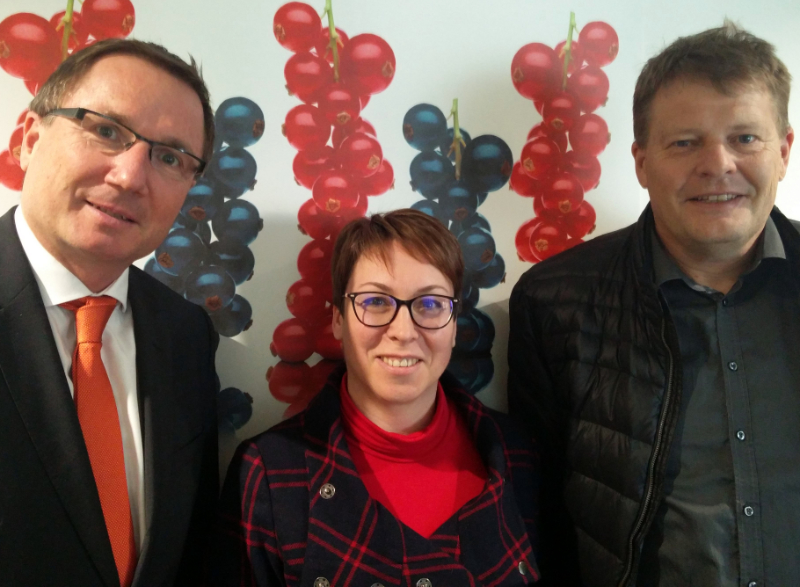
Franz Ennser, expert in the juice business
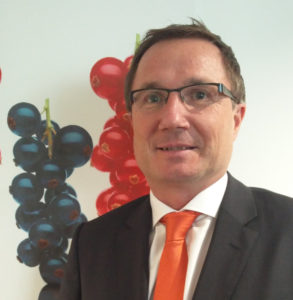
Former purchaser of raw material at Agrana, Franz Ennser has a 15 years experience in the juice sector. His responsibilities after the merger have changed and now include Purchase, Production, Quality Management and Security, Humain Ressources and Technical Research & Development. He has a clear view of the blackcurrant market:
“There is an ongoing soft decrease in demand for blackcurrant juice concentrate. This is totally in line with the general decline in the juice business. People tend to drink more flavoured waters or sodas. Moreover, the high natural sugar content of fruit juices has become a subject for nutritionists”, he says.
According to Franz Ennser, the need for blackcurrants in the juice sector is of 70.000 to 80.000 tonnes per year. It is between 5.000 and 8.000 tonnes for red currants, by the way. The prices for the raw material, of course, depend most on what the end product industry is ready to pay. Unfortunately, this is not much. Everyobody knows that there are enough blackcurrants, and low prices are more important than quality currently.
“Additionally, in the past few years, more and more people turn their back to fruit juices from concentrates. The demand for NFC (“not from concentrate”) in the fruit juice business is growing. This is in line with the general trend for healthy, fresh and regional products”, explains Ennser.
News and trends in the food and beverage industry
If you want to read more about new market trends in the food and beverage industry, we strongly recommend you to have a look at the Austria Juice website. There is a lot of information to gather which will help you to adapt to the changing market and stay connected with current trends!
In line with the IBA Executive meeting in Austria and visits in Austria, there is a very interesting article about changes in the new EU organic regulation for 2021 and the general trends in the organic market.
Explore much more, according to your field of interest!
